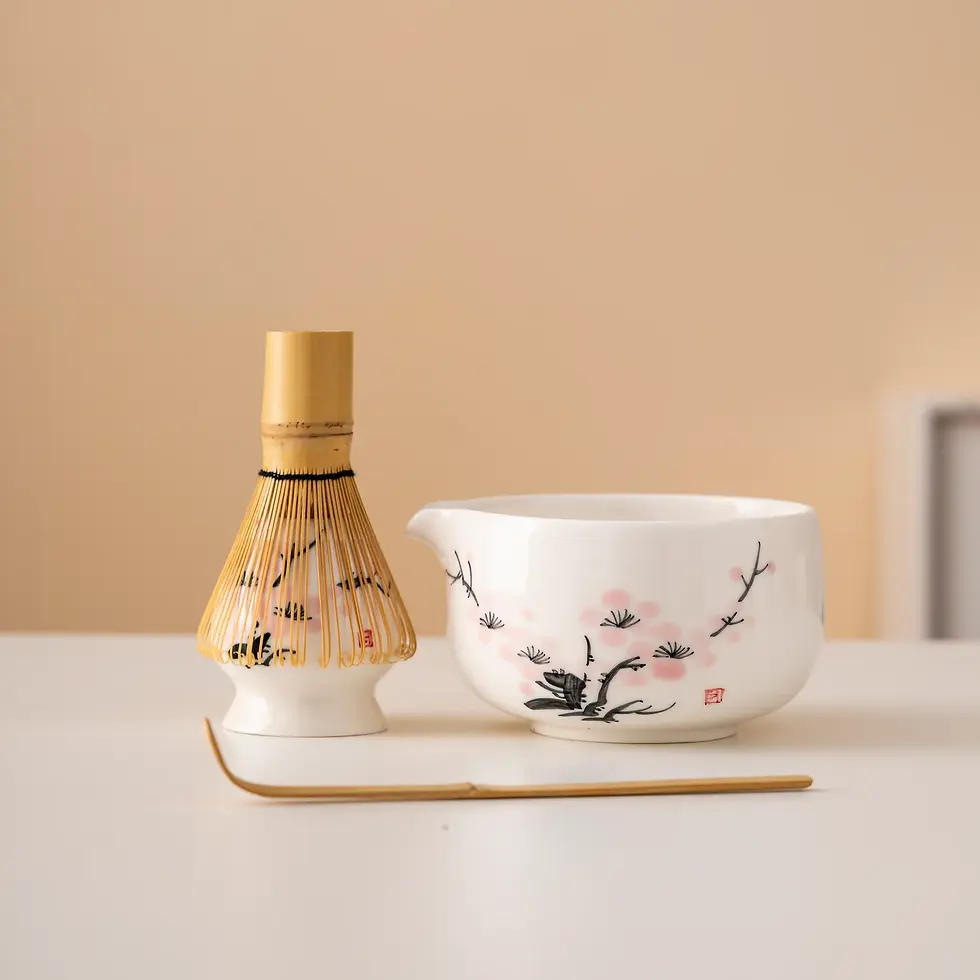The Vigilante is a bit of a different lapsang souchong, distinct from its bretheren down to its very core being. It's grown in the Fujian province in the lower reaches of the Wuyi Mountains and made in absolutely traditional fashion with a strange twist. Lapsang Souchong is made by taking Fujian-grown leaves and withering the leaf over a pine fine, then pressing the leaves into a wooden barrel covered in cloth to allow the leaf to oxidize. Then, after it has that rich, beautiful smell of lapsang, it's pulled out and dried in bamboo baskets over a fresh pine fire.
Now what makes the Vigilante different? What makes it "broody?" Well, for one the tea is actually left in that barrel to oxidize far longer than a typical lapsang, allowing it to partially dry against the wood and take in the scent of the wood around it, as the cloth holds in the moisture. For two, the tea is then removed and actually smoked over an oak fire rather than pine! Now how is this different? Does the wood actually make that much of a difference in the taste of a tea? Yes. Yes it absolutely does.
Pine smoke carries with it a careful bite, a form of snap from the light wood, a noticable crackle off of all the tiny pine needles in every branch, and typically very little flavor from deeper elements like the roots or branches, since lapsang fires rarely use anything but branches (see the Desperate Fury for a lapsang that uses rootstock and body-wood). Oak, on the other hand, is a much harder, much darker wood with whole leaves which makes for a very different smoke. The oak smoke gives this tea a dark, hard, full-bodied smoke unlike any other lapsang. While it's no smokier than other lapsangs, it is certainly a more interesting, bodied, darker smoke than any other. The full leaves of the oak leave very little snap, and the heavy, stocky branches burn slower, making for a more rounded, careful, less disturbed smoke, as it can rest and burn for much longer than pine boughs.
The Vigilante itself, as a result of this, is a much darker, heavier, more bodied lapsang than any we've carried in the past. The smoke weighs heavy in your mouth and carries with it absolutely no bite from the usual pine-wood flavor. It's perfectly smooth and elegant with no fight, no pressure, no anger, just a careful, contemplative flavor profile through and through. We call it "Broody" because it is a perfect tea to drink in careful contemplation, something to stew on, something to mull over. Like a fine scotch aged for twenty years, while most lapsangs could be compared to a younger scotch. It carries with is the flavor of the cask, the smoke, and the tea itself.
Gwen's Suggestion
Gwen prefers this tea, like most lapsangs, straight and hot with absolutely nothing in it at the 2:30 mark. Some may prefer to go longer to get a darker flavor, but she believes that any longer than 2:30 will start to bring out the bitterness in the, frankly, standard-grade black tea. The smoke makes the fairly typical black tea interesting, and if you steep too long, the bitter black tea overtakes the smoke. So she reccomends steeping it less and appreciating the soft, elegant flavors.
The NameThe logic behind this name was simple. This is a smooth, clean, elegant lapsang souchong made for careful contemplation. It's dark, it's fiery, but it's calm and relaxed, like staring into a firepit. There's no danger, no stress, just calmly taking in the chaos of the flames from a safe vantage. Sipping this tea, Gwen could not get the image of a Caped Crusader sitting atop a gargoyle high up a skyscraper staring down at gently blinking lights of the city, too high up to hear the noise, just watching the chaos below. It's not a tea for the action that follows, but a tea for the quiet moments staring down at that city, a calm before the storm.
Vigilante — Broody Lapsang Souchong
- Use 7g (≈1 tbsp) of leaf per ½ liter (≈17 oz) of water.
- Use boiling (90°C/195°F) water
- Steep for 2:30, strain leaves, and enjoy!

















